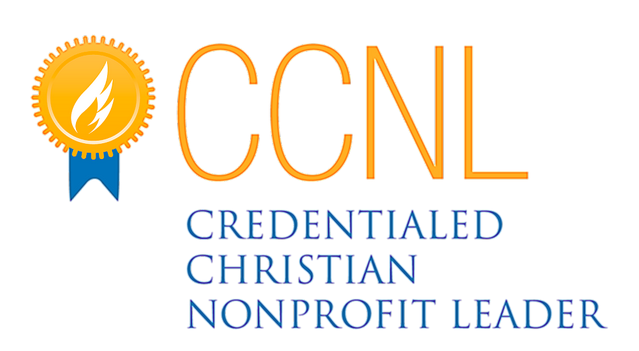
Letters to Seven Churches by Dr. Gary Hoag
 Letters to Seven Churches about Money
Letters to Seven Churches about Money
In Revelation 2-3 we find “the letters to the seven churches.” Some call them “love letters” as they come from Christ to His bride, the church, in the cities of Ephesus, Smyrna, Pergamum, Thyatira, Sardis, Philadelphia, and Laodicea.
This article highlights seven more New Testament (NT) churches and shines light on the teachings on money to those churches. We will explore them chronologically as they appear in NT correspondence (with the approximate year in the first century in parentheses).
(1) To the church in Galatia (c. 48-49): Don’t return to slavery.
The first Christians who had experienced the NT gospel of grace grappled with what to do with Old Testament (OT) teachings on money. The Apostle Paul refrains from using OT law language like the “tithe” as it would send people back to slavery (Gal. 5:1). Instead, he urged the Galatians to remember the poor (2:9-10), to support pastors and teachers (6:6), and to fund efforts that served God’s people and those who may not yet know the Lord (6:9-10). These instructions provide a biblical foundation for faithful stewardship and church budgeting today.
(2) To the church in Thessalonica (c. 52-54): Get to work!
The church was not to offer hand-outs to the poor that can encourage laziness. Those who can work, must work, or they should not eat (2 Thess. 3:7-13). It is fitting then, that Paul wrote the Thessalonians and told them to give hand-ups instead and to set an example for believers to imitate. Our service to the poor nowadays should follow suit.
(3) To the church in Corinth (c. 53-58): Live simply and share richly!
As needs arose in the early church, Paul explicitly directed Christians in Corinth and elsewhere to set aside their surplus income for sharing (1 Cor. 16:1-4). In modern times, churches often deliver get-out-of-debt training, and would be wise to go a step further and teach disciples of Christ to live simply so they can share richly!
(4) To the church in Rome (c. 56-58): Put a seal on ministry collections to enhance trust!
When Paul administrated the international collection for the starving saints in Jerusalem, he literally affixed a seal on their giving to give people confidence in the faithful handling of God’s money (Rom. 15:25-29). Likewise, churches in the USA today can enhance trust by freely using Church Excel resources and by becoming accredited members of ECFA. The same is true in South Korea (CCFK), Australia (CMASC), Kenya (AfCAA), and the Philippines (CCTA). These peer groups have seals that celebrate responsible stewardship and encourage greater giving to churches.
(5) To the church in Colossae (c. 60-61): Take hold of true riches!
The letter to the affluent Colossians celebrates the supremacy of Christ and helps readers discern that true riches are only found in Him (Col. 1:25-27)! In the ancient world and our present times, the competing god of materialism seeks to lead many astray. Our churches must help people treasure Christ above everything else!
(6) To the church in Hierapolis (c. 60-61): Grow up!
Laodicea, Colossae, and Hierapolis were known as the “tri-cities area” in first century. Hierapolis had hot springs and people visited there seeking good health and prosperity. Paul’s prayed they would grow and mature in the faith (Col. 4:12-13). There are no short-cuts to spiritual growth. Often immature believers fall prey to prosperity gospel, which is taking OT covenant promises out of context. Church leaders must pray for them and help them grow up!
(7) To the church in Macedonia (c. 61-62)! Participation is a privilege!
The Macedonian Christians, despite their poverty, gave more than the Apostle Paul expected to the collection for the saints in Jerusalem, because they considered it a privilege to participate. “They gave themselves first to the Lord” (2 Cor. 8:1-5). This means they believed that God owned them and all they possessed was at His disposal. Everything! When we talk about money in churches today, we should remind God’s people that all they are and all they have belongs to God and should be used to accomplish His purposes for His glory. This means pastors and church administrators must model the simplicity and generosity they desire to see in the lives of those they serve.
Taken together, these “letters to seven churches about money” give us a broad view of how Christ wants His bride, the church, to relate to money.
What would Christ say about money if he wrote a letter to your church?
####
Gary Hoag, Ph.D., (New Testament, Trinity College, Bristol, UK), serves as a visiting professor at various seminaries, part-time as ECFA International Liaison, and is known widely as “the Generosity Monk” as he’s dedicated his life to encouraging Christian generosity. Subscribe to his daily blog at www.generositymonk.com.
Christian Leadership Alliance offers the The Credentialed Christian Nonprofit Leader (CCNL) program. This program is designed to promote biblical principles and professional standards in Christian nonprofit organizations. This program exists because Christian nonprofits need leaders who have proven expertise and certified excellence in their professional fields. LEARN MORE about how you can enroll, today!


What is Christian Leadership Alliance?
Christian Leadership Alliance equips and unites leaders to transform the world for Christ. We are the leaders of Christ-centered organizations who are dedicated to faithful stewardship for greater kingdom impact.
Sign up for FREE blog updates.
Upcoming Events
Check back later!


